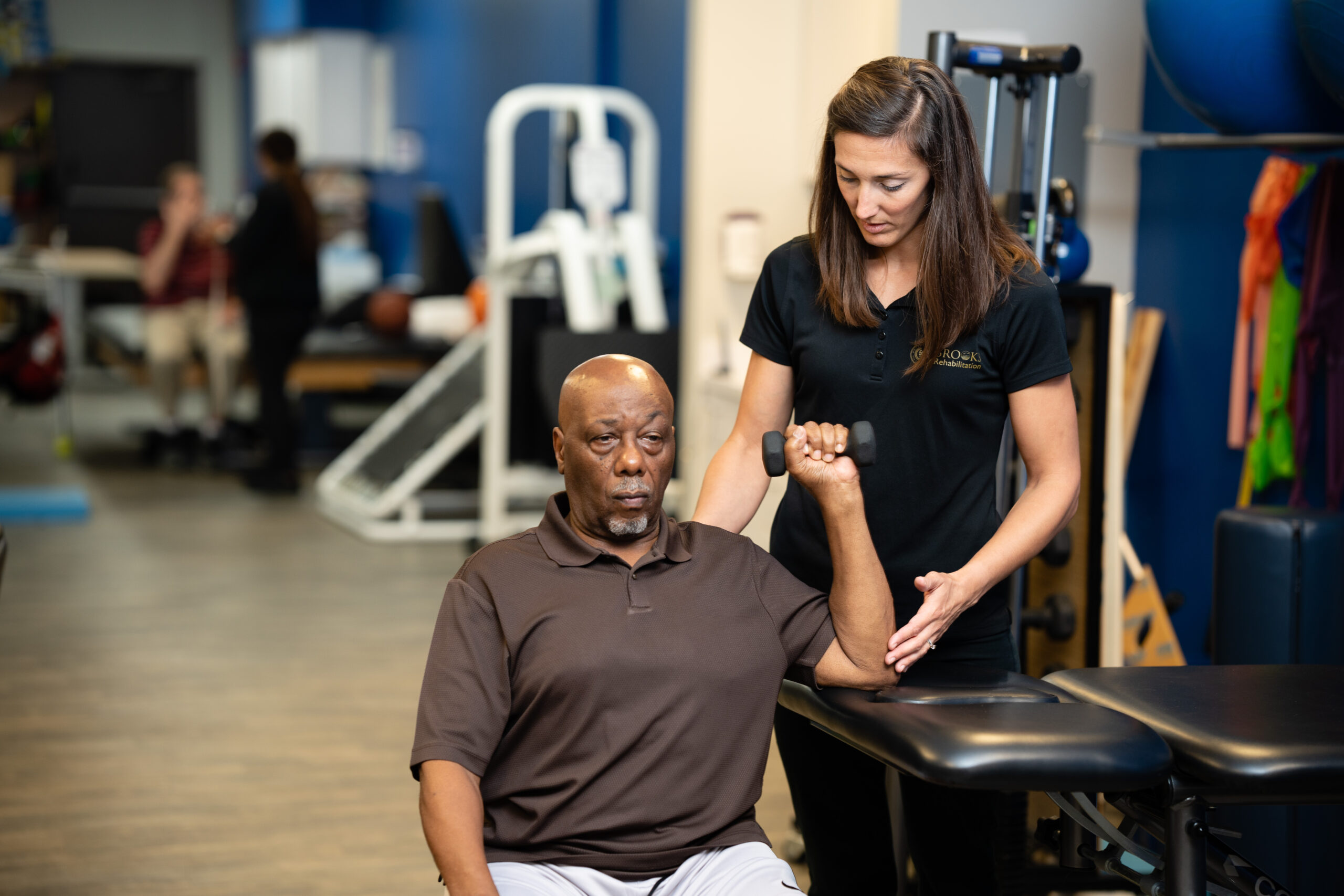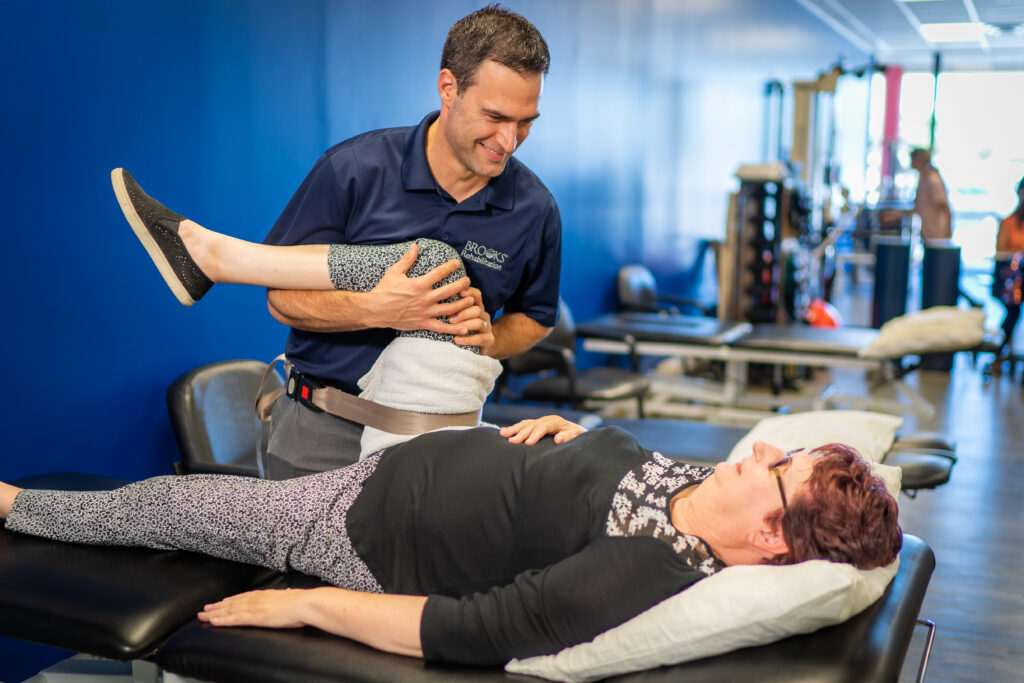
Physical therapists at Brooks
Physical therapists specialize in the physical rehabilitation of injuries that disrupt the normal movement pattern and facilitate recovery by optimizing range of motion and strength through tailored exercises and manual therapy interventions.
Unique to physiotherapists at Brooks is the residency and fellowship training that they undergo, making them some of the most highly trained clinicians in the nation.
Our treatment approach
Your first visit will be a comprehensive evaluation including a detailed discussion about your injury, pain levels and functional limitations. The therapist will assess your current abilities, take baseline measurements and develop a personalized care plan. The plan may include immediate exercises or initial education with exercises beginning at a later appointment.
Follow-up treatment typically involves:
- 2-3 weekly sessions (approximately 45 minutes each)
- Combination of guided exercises and manual techniques
- Progressive difficulty as you improve
- Home exercise program for faster results and long-term maintenance
The ultimate goal is to restore your independence through safe, efficient movement while providing education for lifelong health and wellness.
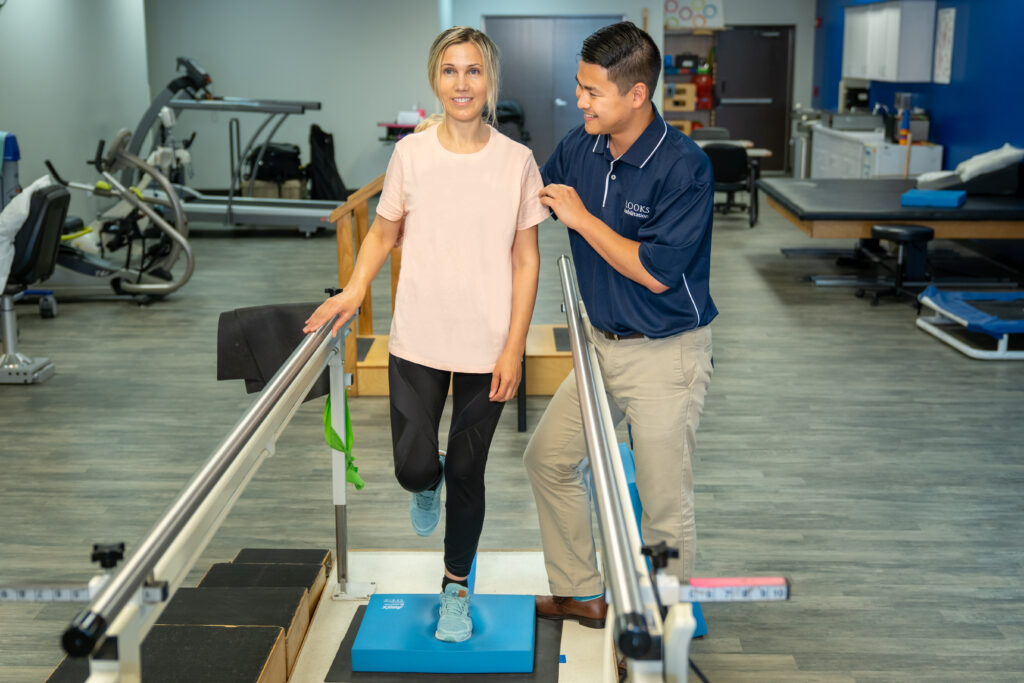
Find a physical therapist near you
Brooks Rehabilitation has over 45 outpatient facilities with a variety of expert physical therapy treatment services throughout the greater Jacksonville, Fernandina, St. Augustine, Palm Coast, Daytona, Orlando and Tampa regions.
To find your closest location with the services you need, visit our location page.
Physical therapy services we offer
Brooks offers a variety of outpatient physical therapy services throughout North and Central Florida. Services are based on considerations such as a patient’s age, physical needs and goals. Some of the most common services we provide include:
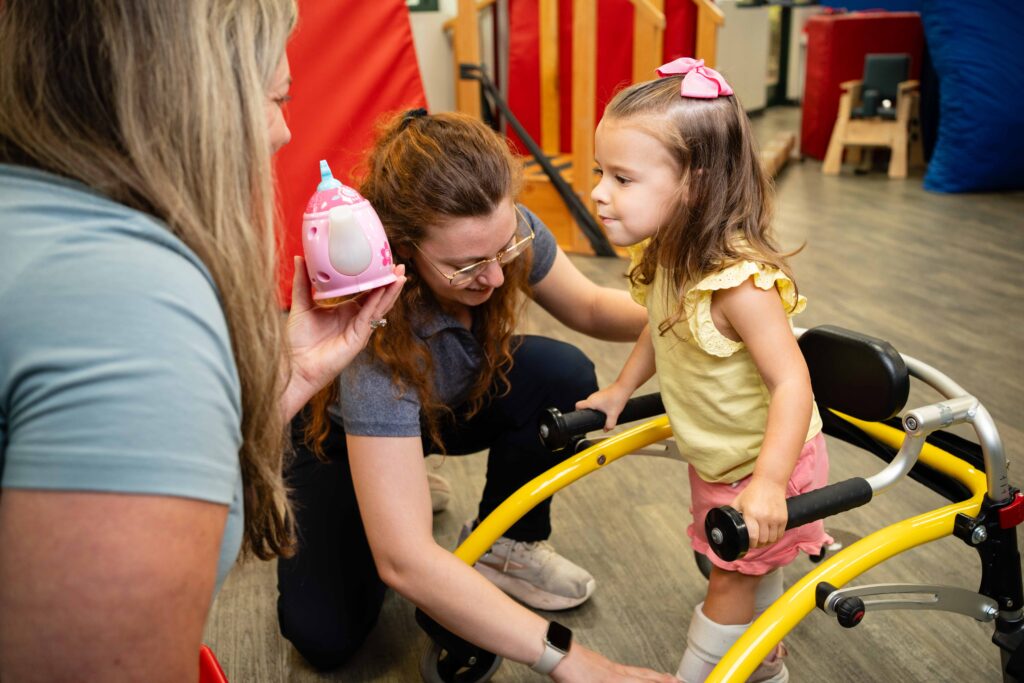
Pediatric physical therapy
Our expert clinicians provide caring and compassionate therapy that is fun, engaging and motivational using the latest methods, technology and treatments. We serve pediatric patients from newborn until they are ready to transition to adult therapy.
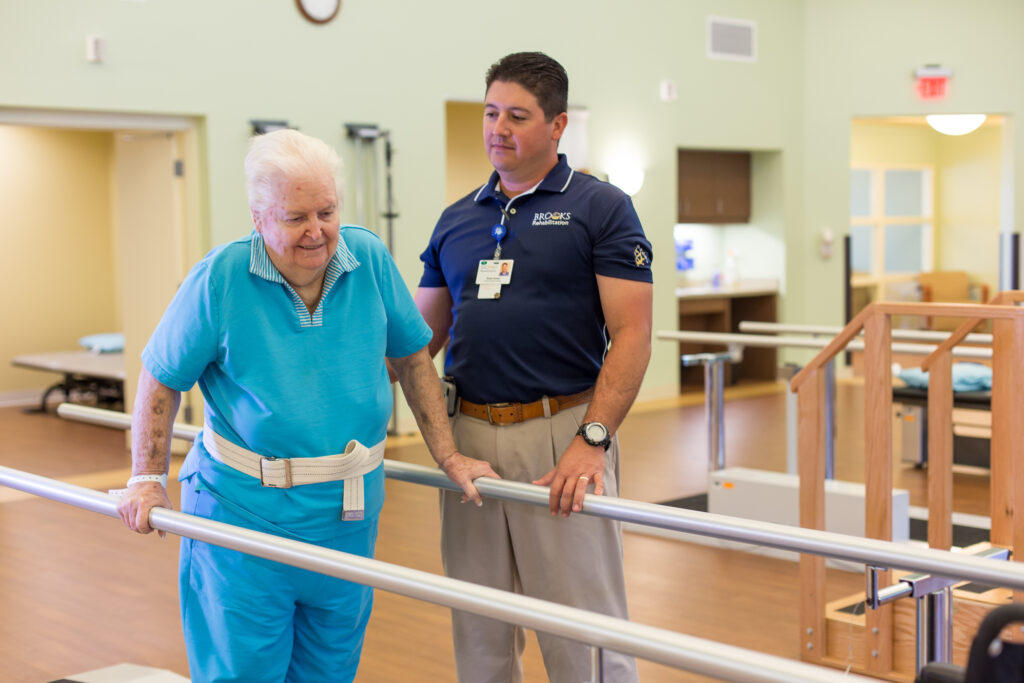
Geriatric physical therapy
Aging adults experience age-related and condition-related changes; our trained clinicians will create a personalized plan to help you reach your goals.
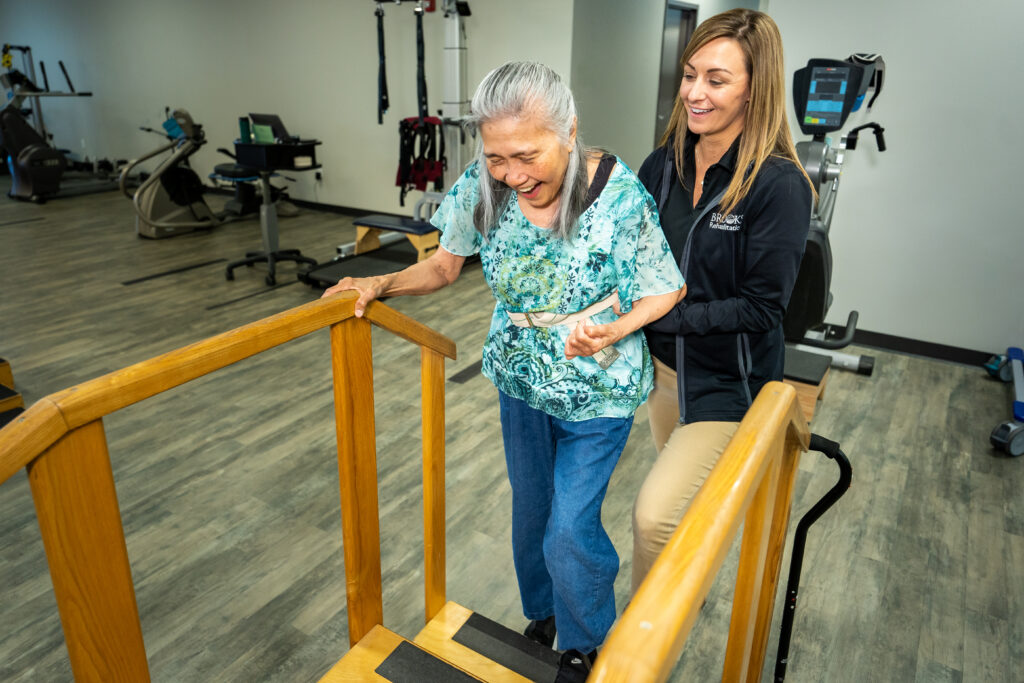
Balance and vestibular physical therapy
Brooks provides specialized treatment for balance disorders resulting from age, injury or illness. If you are feeling dizzy or out of balance, our therapists have extensive training in vestibular and balance rehabilitation, as well as specialized equipment available.
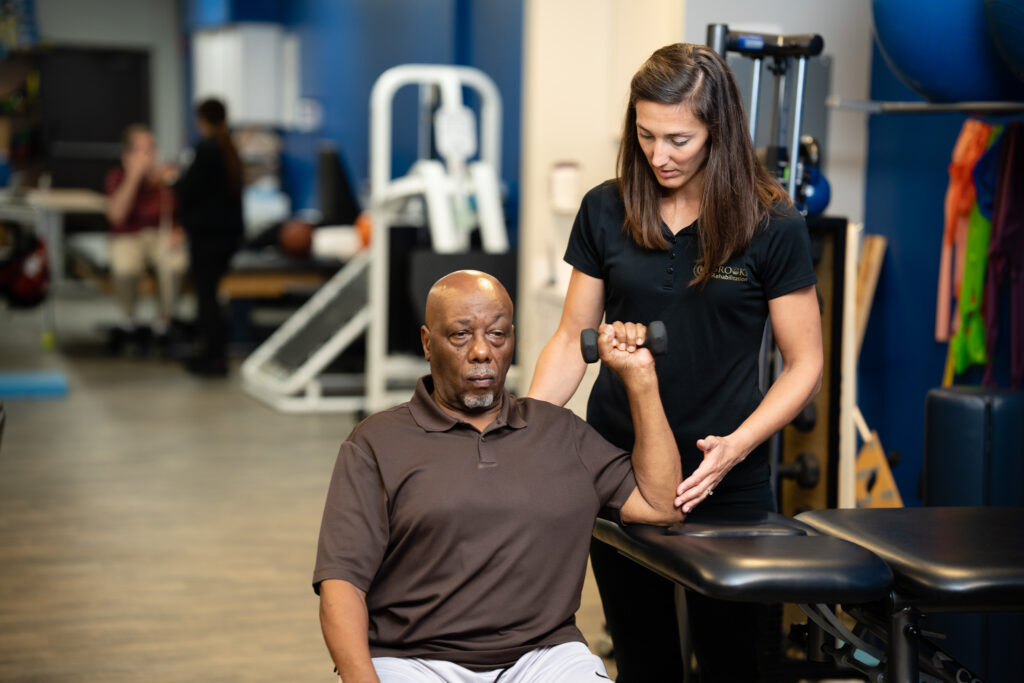
Orthopedic physical therapy
We provide treatment for musculoskeletal issues that cause pain and limited mobility. Types of conditions include neck or low back pain, strains and sprains, surgical repair or joint replacements.
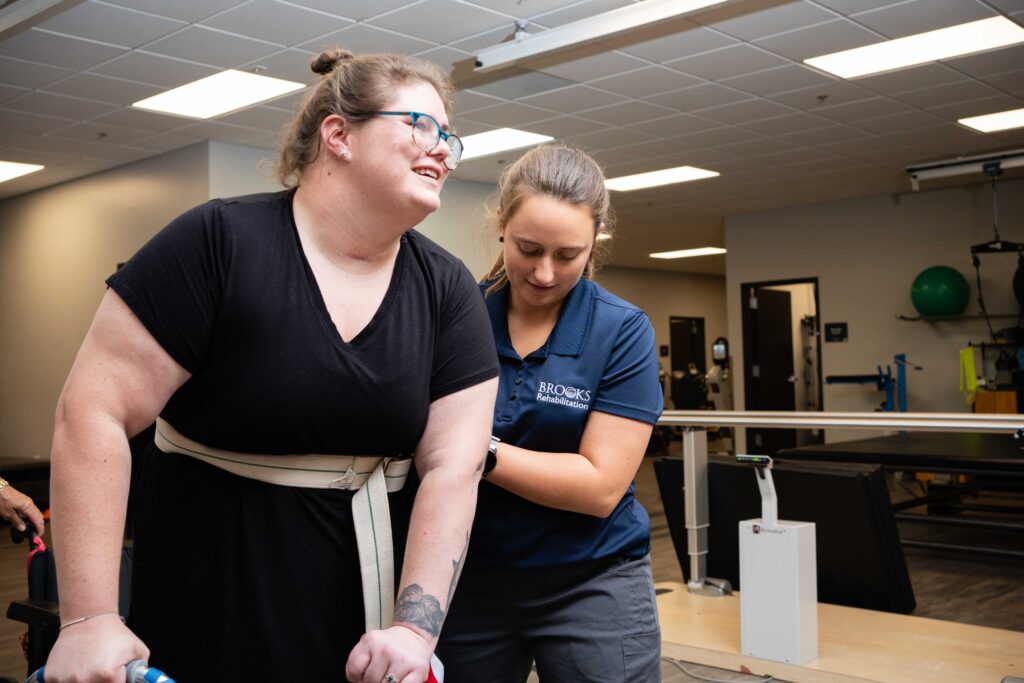
Neurological physical therapy
Neurological physical therapy is a specialty that focuses on recovery for stroke, brain injury and spinal cord injuries. Injuries caused by disease or injury of the nervous system are also treated through neurological PT.
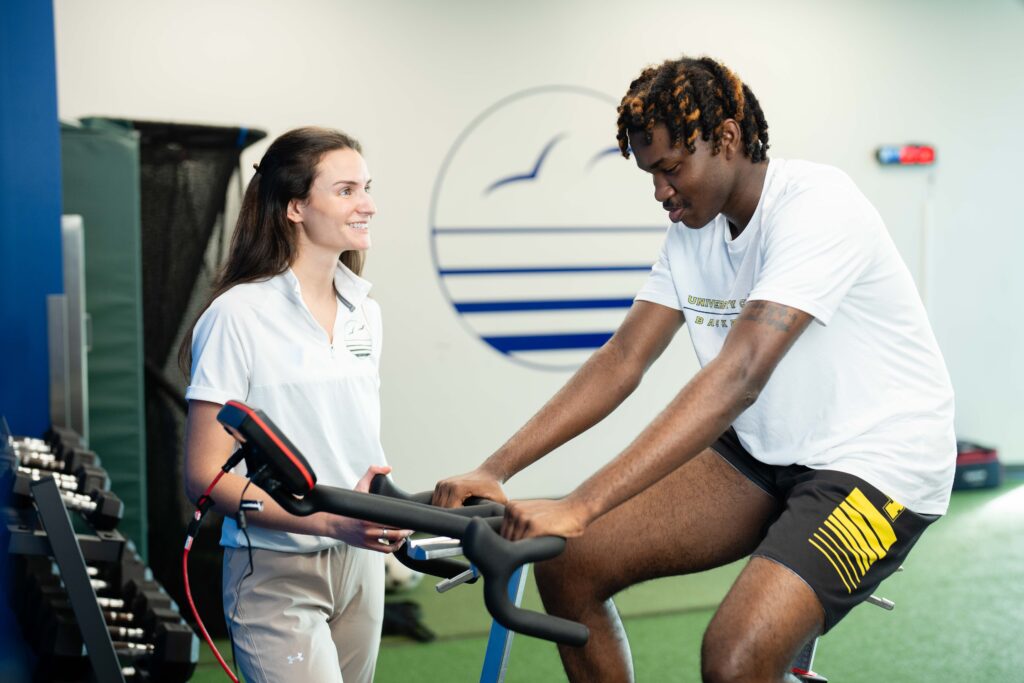
Sports physical therapy
Sports physical therapy is a specialty within the profession of physical therapy that focuses on the rehabilitation and the return to sport participation of athletes of all ages, genders and skill levels.

Pelvic health physical therapy
Pelvic health physical therapy at Brooks is performed by therapists who are specially trained in treating dysfunction of the pelvic floor muscles.
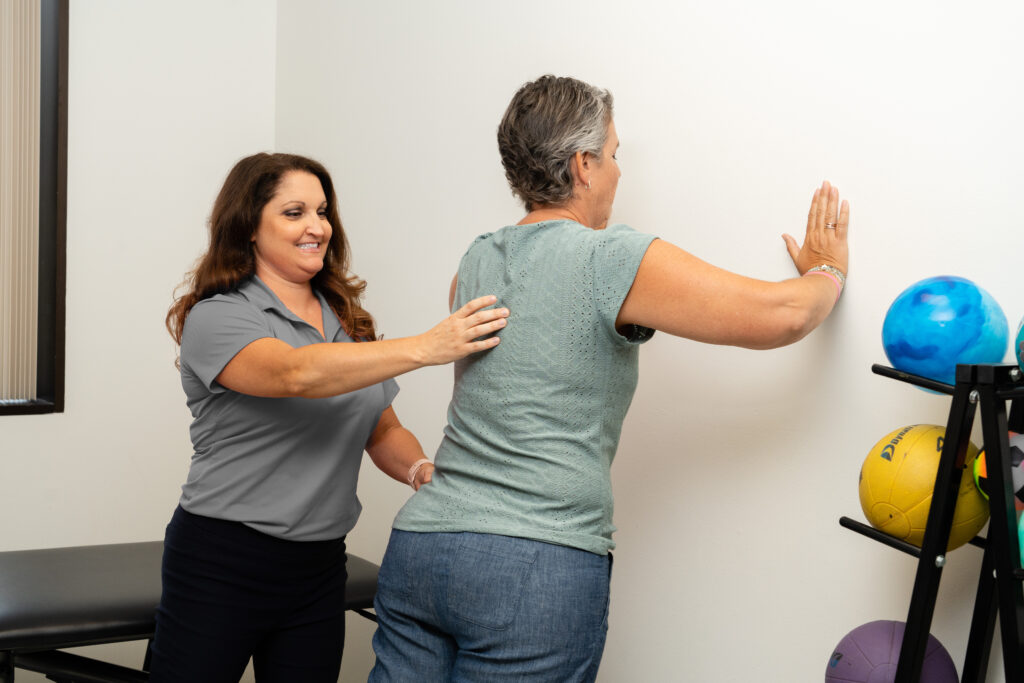
Oncology physical therapy
Oncology rehabilitation focuses on maximizing function and prolonging independence for those who have been affected by cancer. Patients can benefit from oncology rehabilitation whether they have a history of cancer or currently receiving treatment.
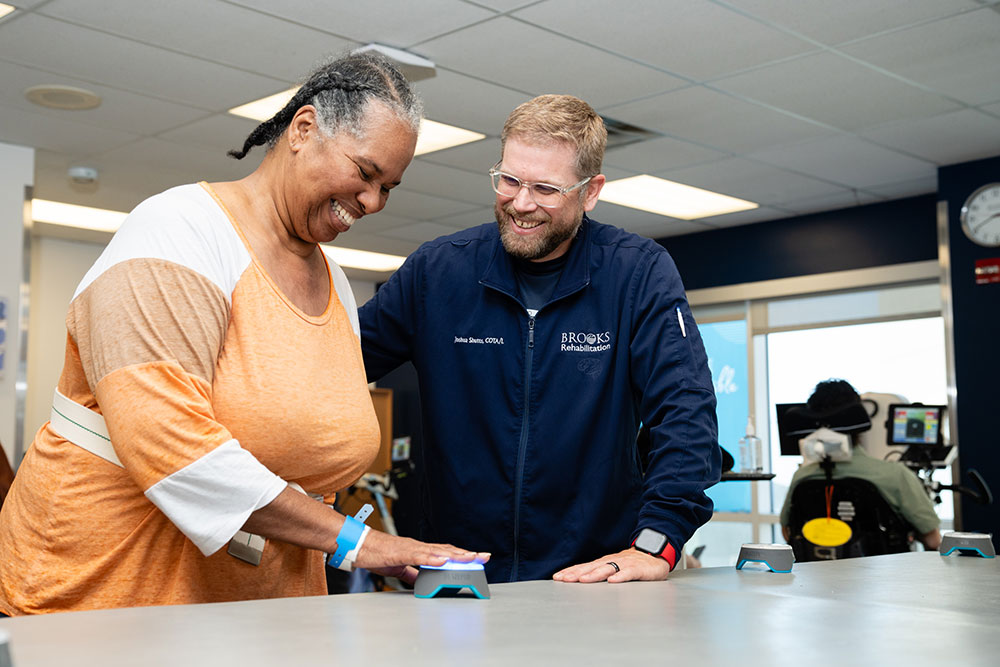
Request physical therapy care
In Florida, many commercial insurance plans offer direct access, meaning that patients can get physical therapy treatment for 30 days before a doctor referral is needed for insurance to continue to pay for care.
If you are unsure whether you have direct access, check with your insurance provider before scheduling or reach out to our Patient Access Center by calling or filling out the form below.
List of accepted insurances at Brooks.
Call: (904) 659-6032
M-F, 8 a.m. – 5:30 p.m.
